Sound and light energy -> evolution
What is Evolution?
Evolution is the process by which living organisms have developed and diversified from earlier forms over time. It is the central organizing principle of biology and explains the diversity of life on Earth.
Evidence of Evolution
- Fossil Record: The fossil record provides evidence of the evolution of organisms over time, showing the appearance and disappearance of species.
- Comparative Anatomy: Comparing the anatomical structures of different organisms reveals similarities and differences that are best explained by evolution.
- Comparative Embryology: Similarities in the early stages of development of different organisms provide evidence of common ancestry.
- Molecular Evidence: Comparing the DNA and protein sequences of different organisms shows patterns of similarity that support the idea of common ancestry.
Natural Selection
Natural selection is the process by which organisms with favorable traits are more likely to survive and reproduce, leading to the gradual change of a species over time.
Genetic Drift
Genetic drift is the random fluctuation of gene frequencies in a population, which can lead to changes in the genetic makeup of a population over time.
Mutation
Mutation is a change in the DNA sequence of an organism, which can introduce new genetic variation into a population and drive evolution.
Human Evolution
The study of human evolution provides insights into the origins and development of our species, Homo sapiens, and the relationships between different hominid species.
Applications of Evolutionary Theory
Evolutionary theory has practical applications in fields such as medicine, agriculture, and conservation biology, helping us understand and address issues related to disease, crop improvement, and biodiversity conservation.
.◂Science Worksheets and Study Guides Fifth Grade. Sound and light energy
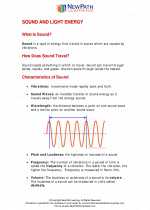
 Activity Lesson
Activity Lesson
 Worksheet/Answer key
Worksheet/Answer key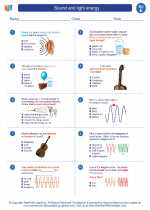
 Worksheet/Answer key
Worksheet/Answer key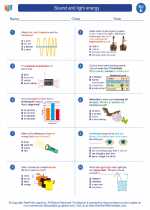
 Worksheet/Answer key
Worksheet/Answer key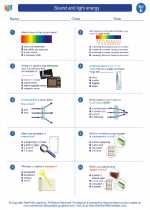
 Worksheet/Answer key
Worksheet/Answer key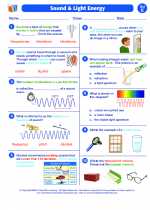
 Vocabulary/Answer key
Vocabulary/Answer key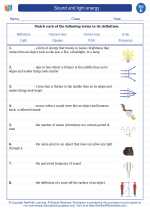
 Vocabulary/Answer key
Vocabulary/Answer key
